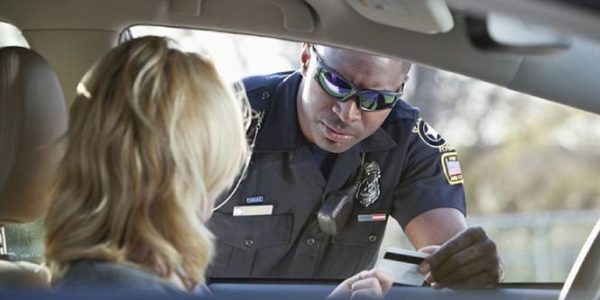Vehicle Code 23152(e)
VC 23153(e) VC establishes California’s “per se” DUI statute specifically for ride-sharing drivers. If a ride-sharing driver meets or surpasses the designated DUI per se “legal limit” of .04%, their driving competence is irrelevant. Even if the driver demonstrates no impairment while driving, they will still be considered under the influence. Many individuals’ driving abilities are not significantly affected at a .04 BAC level.
According to VC 23152(e), any driver transporting passengers for payment can face criminal charges if found to have a BAC of 0.04% or higher.
This holds even if there are no apparent signs of intoxication, as many individuals exhibit none at this low BAC level. This threshold is implemented to enhance passenger safety when utilizing commercial transportation services with higher safety expectations.
The reduced BAC standards outlined in VC 23152(e) apply to the drivers on duty: taxi drivers, limousine drivers transporting ten passengers or fewer, and ride-sharing drivers utilizing app-based ride-sharing platforms such as Uber or Lyft.
A Violation Under VC 23152(e) and BAC Measurement
California Vehicle Code 23152(e) safeguards passengers utilizing commercial transportation services and emphasizes drivers’ responsibility for passenger safety. If a passenger-for-hire driver violates this code, specific conditions must be met.
- The driver must operate a vehicle under the influence, impairing their mental or physical abilities to a degree that makes them unable to drive safely, akin to a sober individual under similar circumstances.
- A paying passenger must be in the vehicle at the time of impairment, encompassing passengers in taxis, limousines, and ride-share vehicles.
- The driver’s blood alcohol content (bac) must meet or surpass the legal limit for commercial drivers, set at 0.04%.
State law rigorously enforces this threshold, mainly when a fare-paying passenger is aboard.
Law enforcement officials are authorized to conduct DUI breath, blood, or urine tests within three hours of driving to measure BAC levels. Refusal to undergo such testing can result in penalties, including license suspension or revocation, as drivers implicitly consent to these tests upon accepting a driver’s license and utilizing public roads.
Consequences of a VC 23152(e) Conviction
The repercussions of a conviction under CA VC Section 23152(e) can vary, contingent upon prior DUI charges or convictions in California. Consequences, depending on previous offenses, encompass misdemeanor DUI penalties, such as :
- Up to six months in a county jail and fines of up to $1,000 for a first offense,
- Escalating to potential imprisonment of up to one year and fines of up to $1,000 for subsequent offenses.
In cases involving injury, misdemeanor DUI could lead to up to one year in state prison and fines reaching $5,000, while felony DUI may result in up to 16 years in state prison and fines up to $5,000.
Besides fines and incarceration, additional penalties may include driver’s license suspension or revocation, mandatory DUI school completion, community service, restricted licenses, ignition interlock device installation, job loss, immigration or citizenship complications, child custody disputes, restitution for injury victims, and damage to personal and professional reputation.
California Vehicle Code 23152 (e) is just one charge among several possible DUI cases. Other charges may include:
- Code 23152(a): Operating a vehicle under the influence of alcohol or drugs, irrespective of BAC level.
- Code23153: DUI causing injury due to impaired driving.
- California Penal Code 273(a): Child endangerment if a minor was in the vehicle during the DUI, especially if under age 14.
- Code20001(a) and § 20002(a): Hit and run charges if the defendant leaves the scene of an accident involving injury or property damage.
- California Penal Code § 191.5(b): Vehicular manslaughter while intoxicated if a DUI results in death.
- Code 23103: Reckless driving if the defendant shows disregard for safety.
- Code 14601.1(a): Driving with a suspended license, particularly if the license was suspended due to a previous DUI.
Common Defenses
California criminal defense attorneys may utilize various strategies to contest the prosecution’s case. Common defenses include:
Challenging the accuracy of breathalyzer calibration or testing procedures if law enforcement fails to adhere to standardized protocols, potentially resulting in inaccurate BAC results.
Moreover, certain medical conditions, such as acid reflux or diabetes, can mimic signs of intoxication or lead to false BAC readings.
Field sobriety tests, being subjective, may yield false positives due to factors like nerves, fatigue, or underlying medical issues.
If the traffic stop or apprehension was conducted short of sensible suspicion or probable cause, it may be possible to have the evidence dismissed.
Furthermore, if the driver can demonstrate they were not operating in a passenger-for-hire capacity during the arrest, they may avoid the lower BAC limit’s applicability.
A VC §23152(e) conviction can significantly disrupt your life. If safeguarding your future is crucial, contacting an experienced California DUI lawyer is vital. Their expertise can help navigate legal complexities and build a strong defense tailored to your situation.


